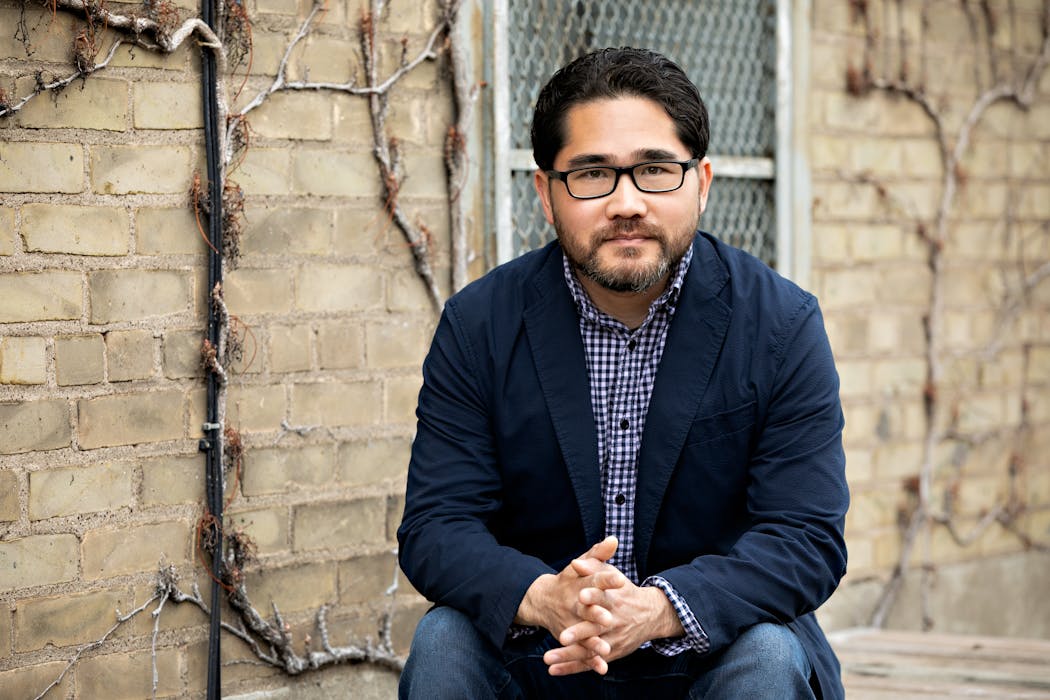My wife and I moved to Minnesota six years ago but have only begun to allow ourselves to grow roots, to think about this land of lakes, excellent beer, and a thriving indie bookstore scene as our home. Such is the betwixt and between state of the tenure-track life in academia.
At first, like many coastal natives (me from the San Francisco Bay Area and my wife from Philly), we came to the state ready to buy the warmest parka we could find at the Mall of America. We've since learned that you do not battle winter in Minnesota but adapt and grow with it (not to mention layer). You also don't bet money on when summer will arrive, often bypassing spring — the waiting and false starts make that first real warmth much sweeter.
For our first years here, parts of those long months were spent escaping to warmer climates or wishing we had lived elsewhere. We lived in a small townhouse in Lakeville that we knew wasn't forever. My wife and I would ask ourselves questions like: "What should we do when summer comes?" "Where should we go?"
The answers were always an escape from Minnesota. Time away from what we treated as a Midwestern stopover. Despite this, in what has become a core millennial past time, we fantasized on Zillow, even looking at houses in Minnesota (but also those temperate metropolises we could never afford).
Though I had yet to get tenure in 2020, the prolonged lockdown plus the financial windfall of a book deal prompted us to buy our first house. We moved in during the winter, but it wasn't until summer that we could feel ourselves thinking about a long future walking our dog beside Minnehaha Creek, of exploring the many restaurants we only knew through no-contact Door Dash.
Much of that next summer was spent with renovations and binge-watching HGTV, attempting to shape a refuge for two writers, an eclectic palace of art and words we could potentially grow old in.
But in the wake of my tenure at St. Olaf College (and buzz soon to build for my first novel), I began noticing friends and colleagues question our intention to settle down. Invitations to apply to faculty positions on the coasts (or even in other countries) soon came despite knowing my wife and I had just bought a house. At conferences, people asked if I was looking elsewhere as if Minneapolis was the consolation prize, after which I would ask them about their New York City rent.
I tell them, it's cold, but you get used to it — and our summers are glorious because we know to appreciate them. And what better place for a writer than one of prolonged quiet followed by renewal, nested in a vibrant community of people who love books?
This summer we'll be headed to Grand Marais with our dog, we're building a pergola for outdoor writing sessions, and I'm oddly looking forward to the dance of mowing a neighbor's lawn before they can mow ours.
But if anything symbolizes our rootedness and the arrival of summer it's our Little Free Library. It's our way of sharing a bit of our lives in books. And what a joy it is to see neighbors contributing to it, to see joggers stop mid-run and sprint away with a novel, or to even hear of a neighbor reading something I've written.
Few other places could allow me to thrive and entertain a life of storytelling while also encouraging me to be just a bit outdoorsy. Summer reminds me that Minnesota is far from being the consolation prize.
Sequoia Nagamatsu, a professor at St. Olaf College in Northfield, is the author of the bestselling "How High We Go In the Dark" and the upcoming "Girl Zero."
Live video of man who set himself on fire outside court proves challenging for news organizations
4/20 grew from humble roots to marijuana's high holiday



